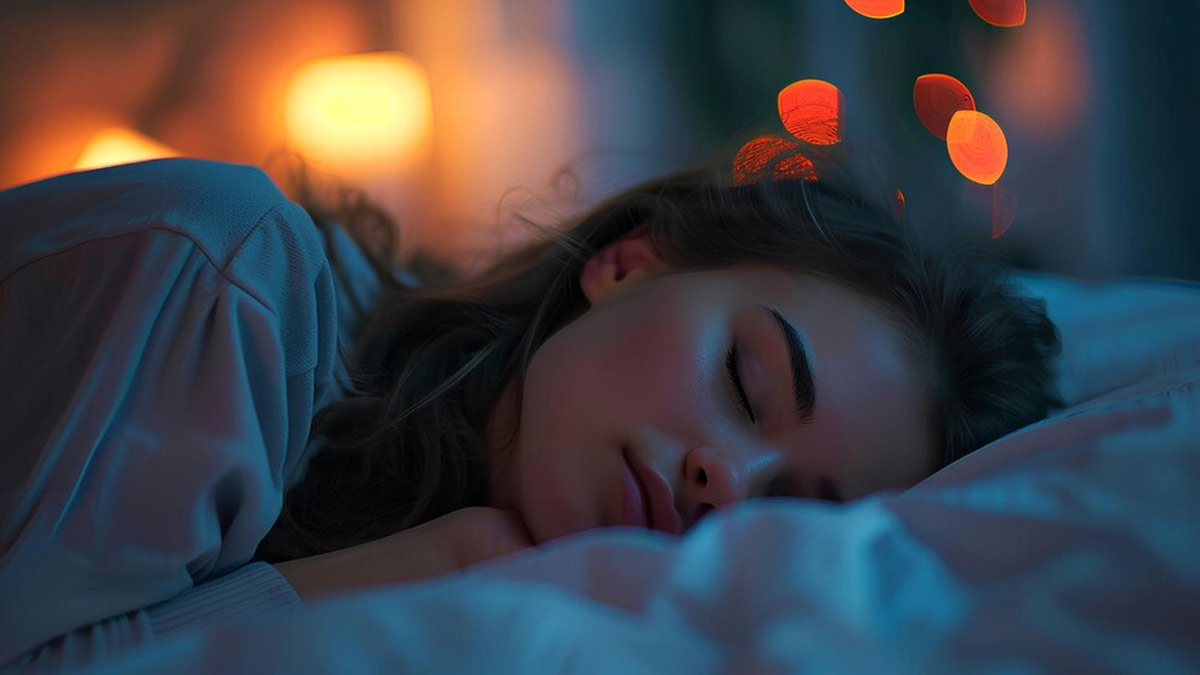
We’ve all heard of sleepwalking, sleep talking, and even bedwetting, but there’s another sleep disorder that’s much less known, sexsomnia. This rare condition involves individuals engaging in sexual activities while asleep, with no conscious memory of their actions upon waking. It is an undesirable physical experience that can occur during any stage of sleep.
Table of Content:-
To get a better understanding about this condition, OnlyMyHealth interacted with Avantika Naidu, Senior Psychologist, Mpower Helpline.
What is Sexsomnia?
Explaining more about sexsomnia, Avantika Naidu said, “Sexsomnia is where people engage in sexual activities while asleep and have no conscious memory of it. This condition is extremely rare, majorly found in men.” Also known as sleep sex, it is a type of parasomnia, a category of sleep disorders that involve abnormal behaviours during sleep. According to a study published by the National Institute of Health, sexsomnia involves sexual activities, such as masturbation, fondling, or attempting to have sex with someone. The study also added, “In all reported cases, memory of the sexual event is completely or almost completely impaired.”

The Role of Sleep Muscle Paralysis
To understand sexsomnia, it’s important to grasp the concept of sleep muscle paralysis. Naidu explained, “When we enter deep sleep, we get sleep muscle paralysis that stops us from moving around, falling, punching someone or making any major muscle movement. It is to protect ourselves from getting injured. It basically keeps us tucked in our bed while we are sleeping.” However, people with these disorders do not experience this paralysis and can make voluntary muscle movements, according to Naidu. Adding further, Naidu said, “They generally masturbate and have sex or try to have sex with someone. They can also be aggressive and violent due to lowered inhibition in their dream-like state.”
Also read: Debunking Myths: The Role of Mental Health in Sexual Wellness
Causes of Sexsomnia
The exact causes of sexsomnia are not well understood, but several factors are believed to contribute to this strange sleep disorder. Here are some of the potential causes of sexsomnia listed by Naidu.
1. Stress and Depression
Stress and depression are significant triggers for various sleep disorders, including sexsomnia. In stressful times, people are unable to think about or engage in sexual activities in their conscious state. As per Naidu, these repressed desires and feelings can come out during dreams and due to the sleep disorder the person might start acting it out.

2. Excessive Alcohol or Drug Consumption
Alcohol and drug consumption are a reason for several psychological problems including sexsomnia. Alcohol and drugs can lower inhibitions and increase the urge to engage in sexual activities. Excessive consumption of alcohol and drugs can disrupt normal sleep patterns and contribute to the occurrence of sexsomnia.
3. Sleep Deprivation and Poor Sleep Hygiene
Sleep deprivation or poor sleep hygiene is also a known cause of sexsomnia. “Rare cases of sexsomnia observed that patients hadn’t slept for 20 - 24 hours. Many times sleep deprivation is due to stress, where the person might find sexual activity in their dream as a channel to relieve stress,” Naidu said.
Furthermore, Naidu said, “The causes are not definite and there might be many underlying reasons for this behaviour to occur. It can cause immense shame and self-blame in the person experiencing this condition. It’s best to consult a professional and seek treatment, please avoid self-diagnosis and immediately contact an expert.”
Also read: Sleep Talking Is Mostly Harmless; So When Does It Become Concerning?
The Psychological Impact
Experiencing sexsomnia can lead to immense shame and self-blame. The lack of conscious control over one’s actions can be deeply unsettling, and the potential for causing distress to a partner can compound feelings of guilt. It’s crucial to understand that sexsomnia is a medical condition and not a reflection of an individual’s character or desires.

Seeking Help
If you or someone you know is experiencing symptoms of sexsomnia, it is essential to seek professional help. Self-diagnosis can be dangerous, as it may overlook underlying conditions that need treatment. Consulting a sleep specialist or a psychologist can provide a proper diagnosis and an appropriate treatment plan. Treatment options may include improving sleep hygiene, managing stress, and, in some cases, medication to regulate sleep patterns.
Conclusion
Sexsomnia is a rare and often misunderstood sleep disorder that can have psychological and relational impacts. Understanding the causes, such as stress, substance use, and sleep deprivation, can help in managing and mitigating the condition. Remember, if you suspect that you or someone you know is dealing with sexsomnia, professional consultation is the best course of action. Addressing this condition with compassion and medical support can lead to effective management and improved quality of life.
Also watch this video
How we keep this article up to date:
We work with experts and keep a close eye on the latest in health and wellness. Whenever there is a new research or helpful information, we update our articles with accurate and useful advice.
Current Version